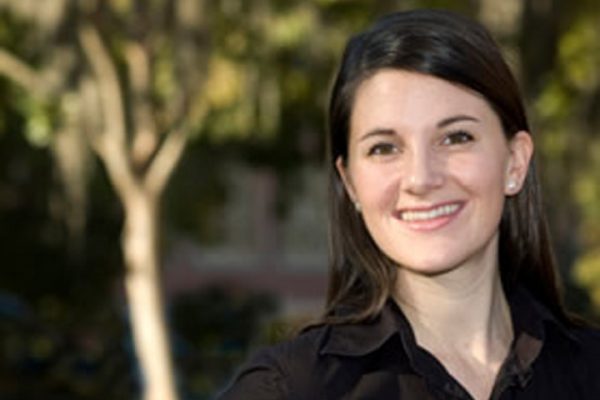
“We all have little rituals and worries that pop into our heads, but when these normal symptoms are realized in a severe, clinical form, they can be incredibly painful and debilitating for individuals and their families.”
Obsessive-Compulsive Disorder (OCD), with its symptoms of persistent, intrusive thoughts (obsessions) and use of rituals or behaviors (compulsions) to control the anxiety produced by these thoughts, affects over two million Americans. The good news is that research is yielding therapies that can help most OCD sufferers lead productive lives.
“I’ve always asked the ‘why’ questions, so a career in science was a natural course to pursue,” explains Kiara Cromer, a doctoral student in her fifth year of study. As an undergraduate, she took the pre-med track toward a degree in Biochemistry, but soon discovered something lacking. “It didn’t fit my personality, since I enjoy working one-on-one with people. I thus began to explore other research fields, eventually discovering Clinical Psychology while on a fellowship at the National Institute of Mental Health (NIMH) in the Adult OCD Clinic.
“OCD and the OC spectrum disorders fascinate me. We all have little rituals and worries that pop into our heads, but when these normal symptoms are realized in a severe, clinical form, they can be incredibly painful and debilitating for individuals and their families. We don’t know as much about OCD and associated syndromes as the other anxiety disorders, so a lot of work needs to be done to understand this condition and to identify vulnerabilities and factors that can be targeted in treatment.”
FSU’s Clinical Psychology program, with its strong emphasis on research, is unique. “Many of our requirements such as the Independent Research Study are designed to prepare us for research faculty positions.” With support from her major professor, Brad Schmidt, Kiara has conducted several preliminary investigations focused on vulnerability factors for OCD. These investigations have garnered her two prestigious fellowships.
NIMH’s National Research Service Award enables her to focus on a variant of OCD—compulsive hoarding—which is recognized as a major public health concern. “My projects investigate proposed vulnerability factors, and the grant has allowed me to travel to national conferences and research clinics run by leading experts on hoarding. These experiences are providing me with invaluable training opportunities.”
With its Research Award, the Obsessive Compulsive Foundation extended Kiara another “tremendous honor”—she is one of only a few graduate students in the Foundation’s history to be selected. Her study focuses on developing a prevention program for postpartum OC symptoms and associated distress, a dramatically understudied area. “It is an exciting project with a real-world application component that has us working with prenatal education specialists and providers in the Tallahassee community, as well as other researchers at the University of North Carolina.”
As the assistant director of FSU’s Anxiety and Behavioral Health Clinic, Kiara supervises clinical intakes and helps assign appropriate clinical service for treatment-seeking individuals or those wishing to participate in a research project. This past year, the Clinic has shown tremendous growth. “In addition to the general treatment services provided, we are conducting several clinical trials for smoking cessation, a treatment for generalized anxiety, and a number of other clinical-research investigations.”




